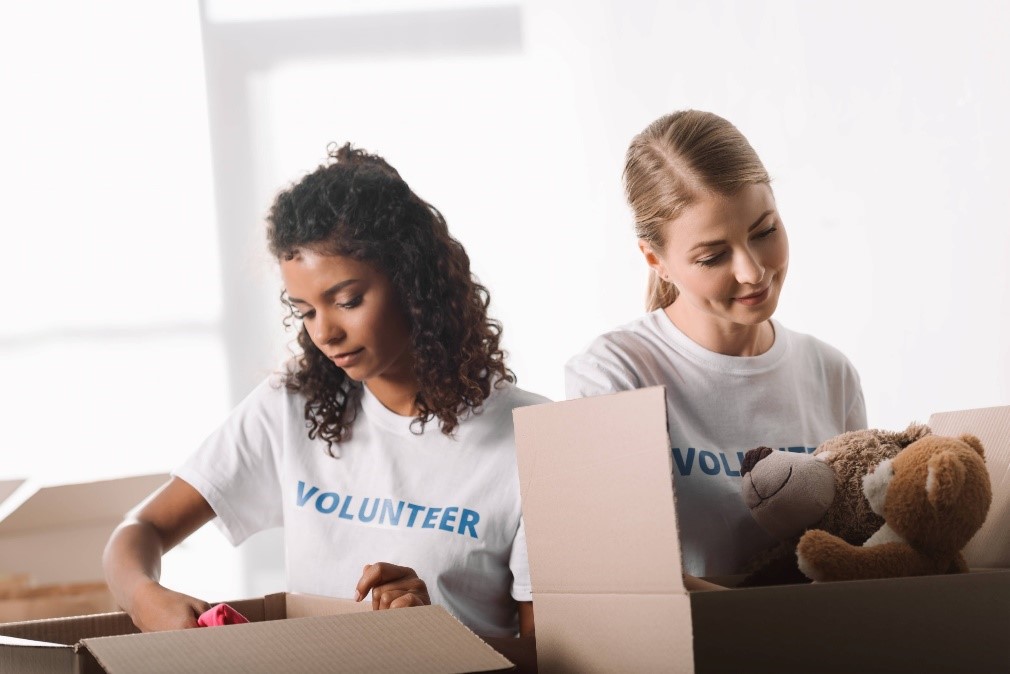Danielle Herschitz is a mentor and volunteer working with teens at her local community center. In the following article, Danielle Herschitz explains how volunteerism can help with choosing, and landing a dream job.
“Study hard, get good grades, and find a high-paying job with good benefits.”
This advice, often repeated by parents or grandparents, embeds in teens the belief that a successful future is only through higher education. And by giving no other paths to choose from, teens trying to get into college or graduates applying for a job face fierce competition.
Danielle Herschitz sheds light on how engaging in volunteerism isn’t just enriching for the lives of teens, but as a strategic pathway that enhances their college applications and equips them with vital skills needed for a successful career.
Danielle Herschitz Explains Empathy’s Impact on Teens
Volunteering is more than just a selfless act, it’s a rewarding journey that shapes teens into empathetic and socially responsible individuals, impacting their lives on multiple levels.
Danielle Herschitz notes that the journey of volunteerism begins by eliminating the social hierarchy of student-teacher authority that is omnipresent in a young person’s life, replacing it with an environment where everyone stands on equal footing.
As volunteers, everyone is equal.
Fostering Compassion Through Volunteering
In this inclusive environment, genuine connections flourish encouraging diverse interactions that can’t be achieved at school or at home. Volunteerism fosters a sense of equality and empathy for others.
Danielle Herschitz explains that empathy isn’t a standalone attribute; it’s interconnected with positive changes that help shape a teenager’s overall well-being. Though volunteerism is mostly done outside the classroom, its effects can be seen within it as well.
Studies show that empathy acts as the foundation for positive behaviors, improved learning outcomes, and better communication skills. Empathy also deters aggressive behaviors and emotional disorders from taking root, which leads to more positive relationships.
As teens immerse themselves in volunteerism, they’re not only satisfying a deep-seated human need for connecting with others, but they’re also investing in an asset that will pay off in the future.
Investing in College Through Free Service
Danielle Herschitz says that the benefits of volunteerism don’t end with personal fulfillment–it extends to education as well, enriching teens’ learning experiences and opening new doors for the future.
Beyond the traditional classroom setting, a study underscores how volunteering serves as an outlet for displaying skills, learning new ones, and applying them in practical scenarios. Skills that will one day be useful in distinguishing volunteers from their peers.
Moreover, engaging in volunteerism also resonates positively with college applications and scholarship opportunities, where a volunteer gains an advantage against equally qualified peers. Considering future job opportunities can be dictated by the university a student graduates from, this small advantage can have big ramifications in the future.
 A Successful Career Built on Volunteerism
A Successful Career Built on Volunteerism
Once teens turn into graduates and begin their transition to the professional world, their history of charitable acts open doors that are normally closed to others. And skills cultivated during volunteering become assets that are highly sought after by employers.
As the job market is flooded with fresh graduates, a degree is no longer the golden ticket that it once was. Nowadays, employers are more and more demanding when it comes to qualifications, requiring experience that can’t be gained in the classroom and skills that are only learned by working.
Danielle Herschitz says that in what is being called “experience inflation,” entry level jobs now require years of experience or some level of past exposure to the job description. These are requirements that most fresh graduates don’t have and they’ll be stuck in a situation where they need experience to work, but they can’t gain experience without working.
Armed with experience that extends beyond the classroom, volunteers bypass this negative feedback loop because volunteering qualifies as experience, and it boosts the probability of getting a job by 27%.
Conclusion
In a world where empathy, higher education, and professional achievement are all intertwined, volunteerism presents itself as a less-traveled side street to a successful future.
Danielle Herschitz explains that the experiences gained through volunteerism form the foundation that teens can build a life that is not only personally fulfilling, but also socially responsible.
Truly, the ROI on free work is infinite.
As teens set off on this journey of empathy, they’re not just contributing to the betterment of their communities, but also prepping the stage for a future that thrives on empathy, education, and lasting success.









